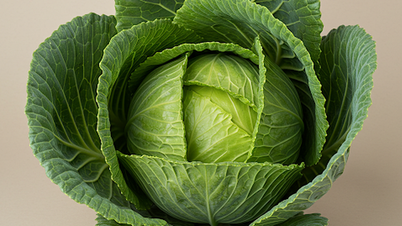Durian is a typical fruit with a strong aroma and rich flavor that is loved by many people, but if eaten incorrectly, this "king" fruit can be harmful to health, especially for people with underlying medical conditions.
Specialist Doctor 2 Huynh Tan Vu, Day Treatment Unit, University of Medicine and Pharmacy Hospital, Ho Chi Minh City - Facility 3 said that durian not only impresses with its strong aroma and characteristic fatty taste but also contains high nutritional content.
"Durian is a fruit rich in energy, vitamins (A, C, B group), minerals such as potassium, iron, magnesium, and abundant fiber. These substances help support immunity, fight oxidation, improve digestion and sleep. However, eating too much or eating the wrong way can cause a series of harmful effects on health," Dr. Vu shared.

Durian impresses with its strong aroma and characteristic fatty taste.
PHOTO: LE CAM
Who should avoid eating durian?
Obese people : Durian contains high calories, so overweight people or people on a diet should limit it.
People with kidney disease, heart disease and high blood pressure : Durian has a high potassium content, so people with kidney disease and heart disease should limit their intake. Potassium retention in the body when kidney failure occurs is extremely dangerous because it can cause heart arrhythmia, even sudden cardiac arrest, which is life-threatening.
Pregnant women and the elderly : Although durian contains folate, which is good for pregnancy, the hot and bloating properties of this fruit make many obstetricians recommend that pregnant women limit its use. Elderly people, especially those with poor digestive systems, may experience bloating and constipation if they eat a lot of durian.
People with internal heat, acne, inflammation : Durian is a hot food. Therefore, people with acne, fever, dry cough, laryngitis, constipation, hemorrhoids, etc. should avoid eating it.
How much durian is enough?
Experts recommend eating only 2-3 durian segments at a time (equivalent to about 150-300 calories) and a maximum of 1-2 times per week . Do not eat durian when hungry, before going to bed or right after a main meal. In particular, you should limit eating cold or frozen durian if you have a weak digestive system.
Foods to avoid when eating durian
Alcohol, coffee. Combining durian with alcohol can cause heat shock and cardiovascular disorders. Drinking coffee after eating durian can cause poisoning due to the interaction between sulfur compounds and caffeine.
Red meat, seafood, spicy foods. These foods when eaten with durian increase the risk of bloating, heat in the body, increase bad cholesterol and cause indigestion.
Notes when eating frozen durian
According to Dr. Vu, thanks to quick freezing technology, durian can now be preserved for a long time while still retaining its flavor. However, it is necessary to ensure that it is not refrozen many times to avoid spoiling the durian. Eat within the expiration date , do not leave it too long.
"Durian is a nutritious fruit but is hot in nature and can easily cause many side effects if eaten incorrectly. People with underlying diseases or in high-risk groups should consult a doctor before using it," Dr. Vu advised.
Source: https://thanhnien.vn/thuc-pham-nao-can-tranh-an-cung-sau-rieng-185250618135846876.htm











































































































Comment (0)